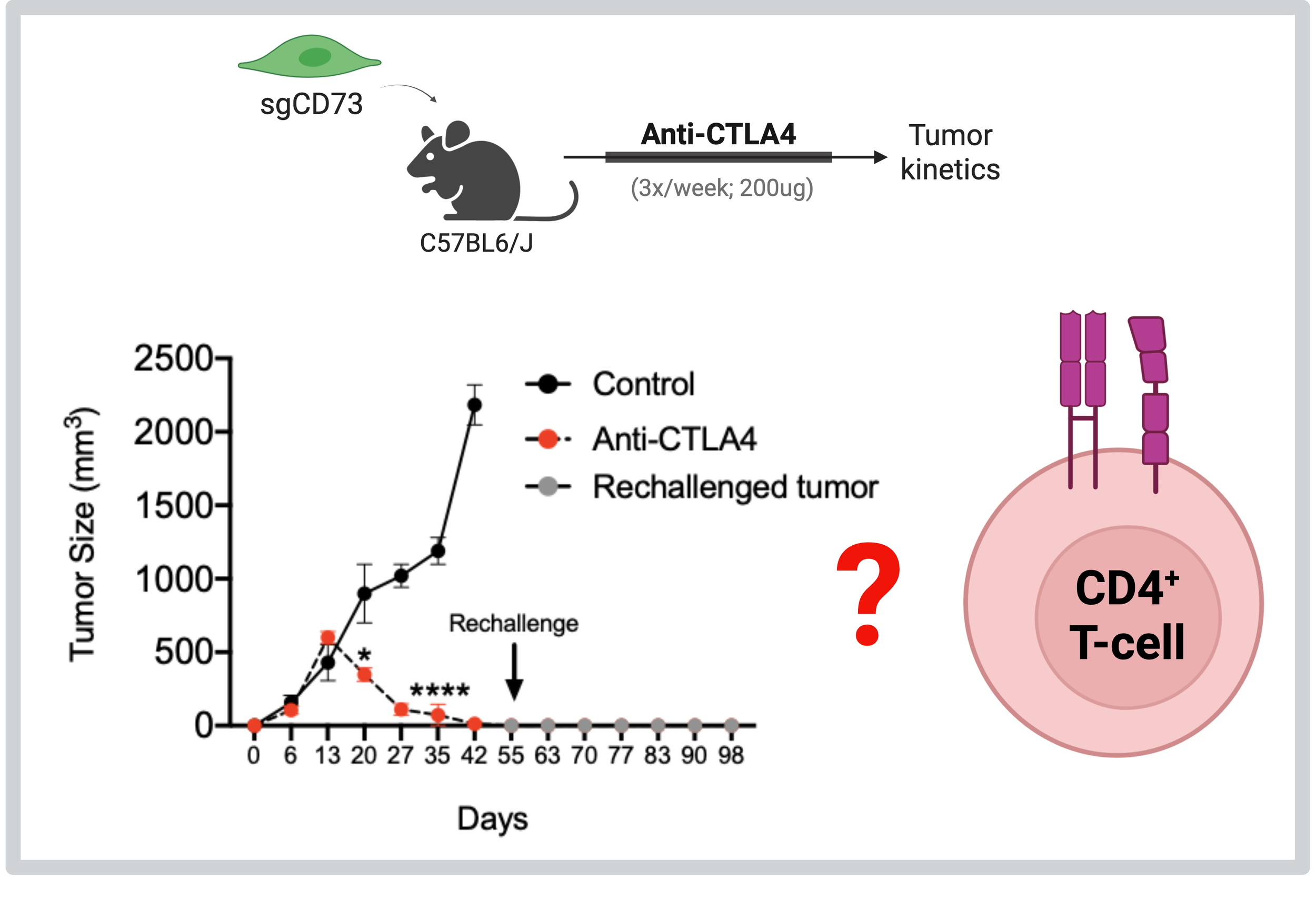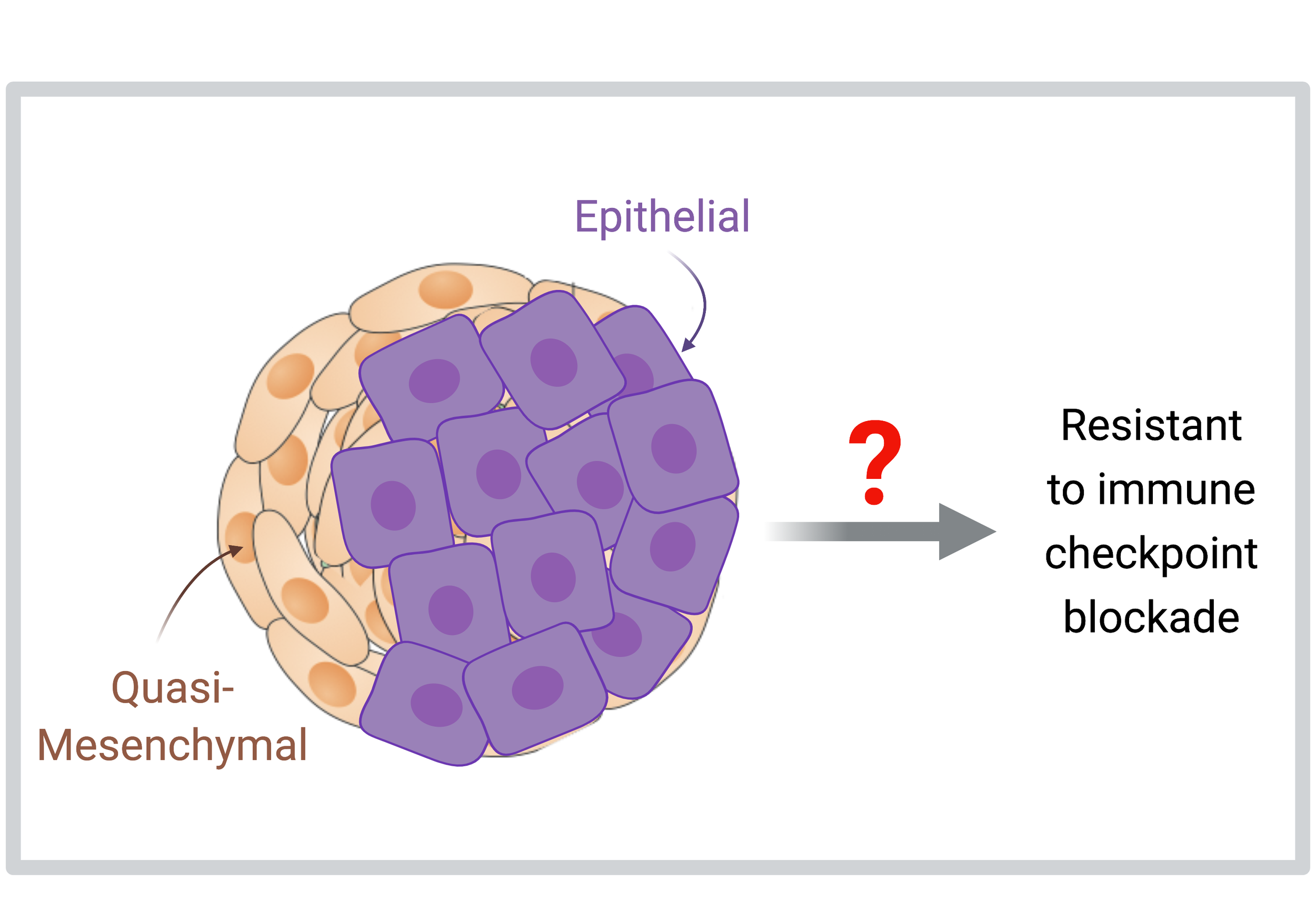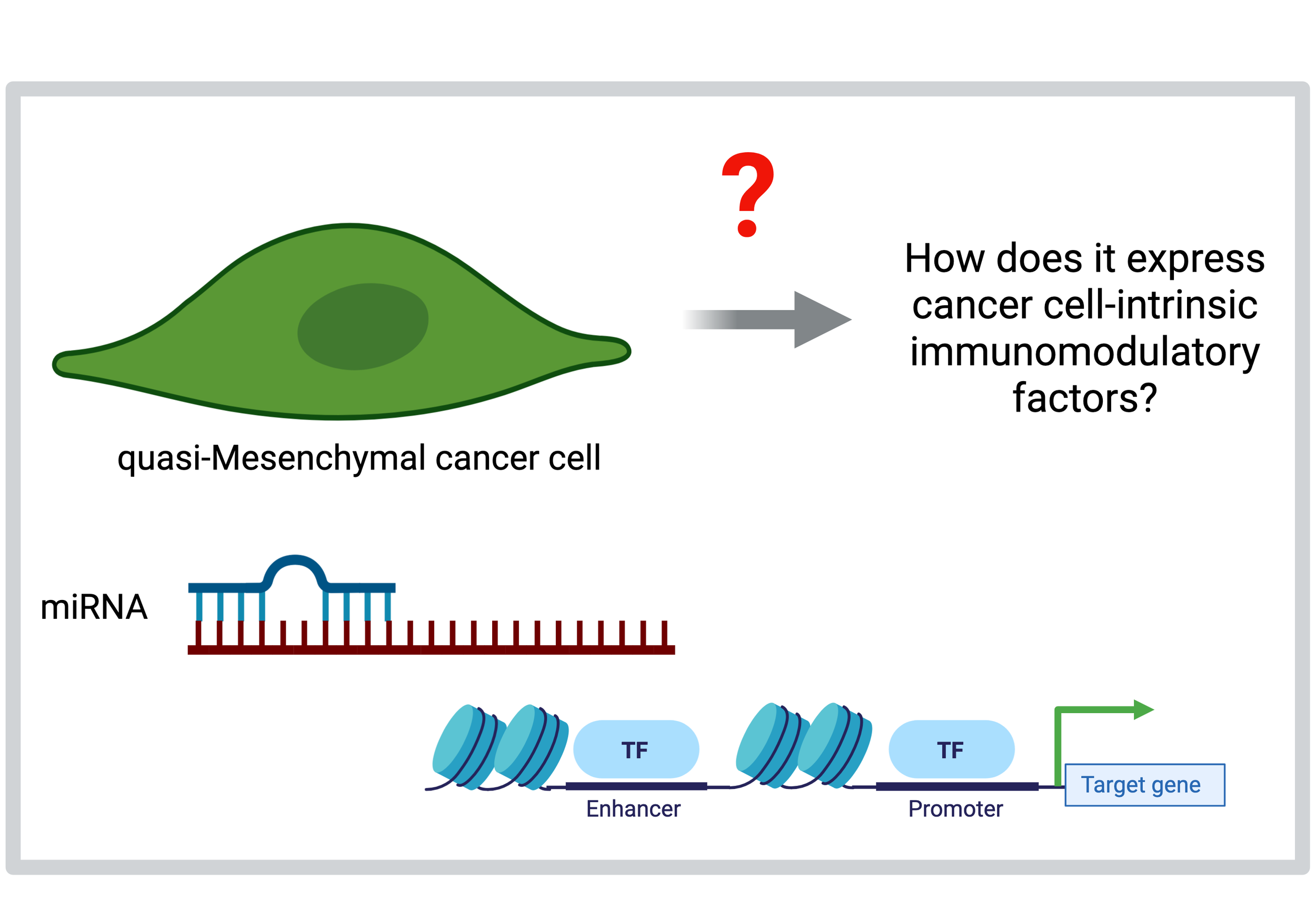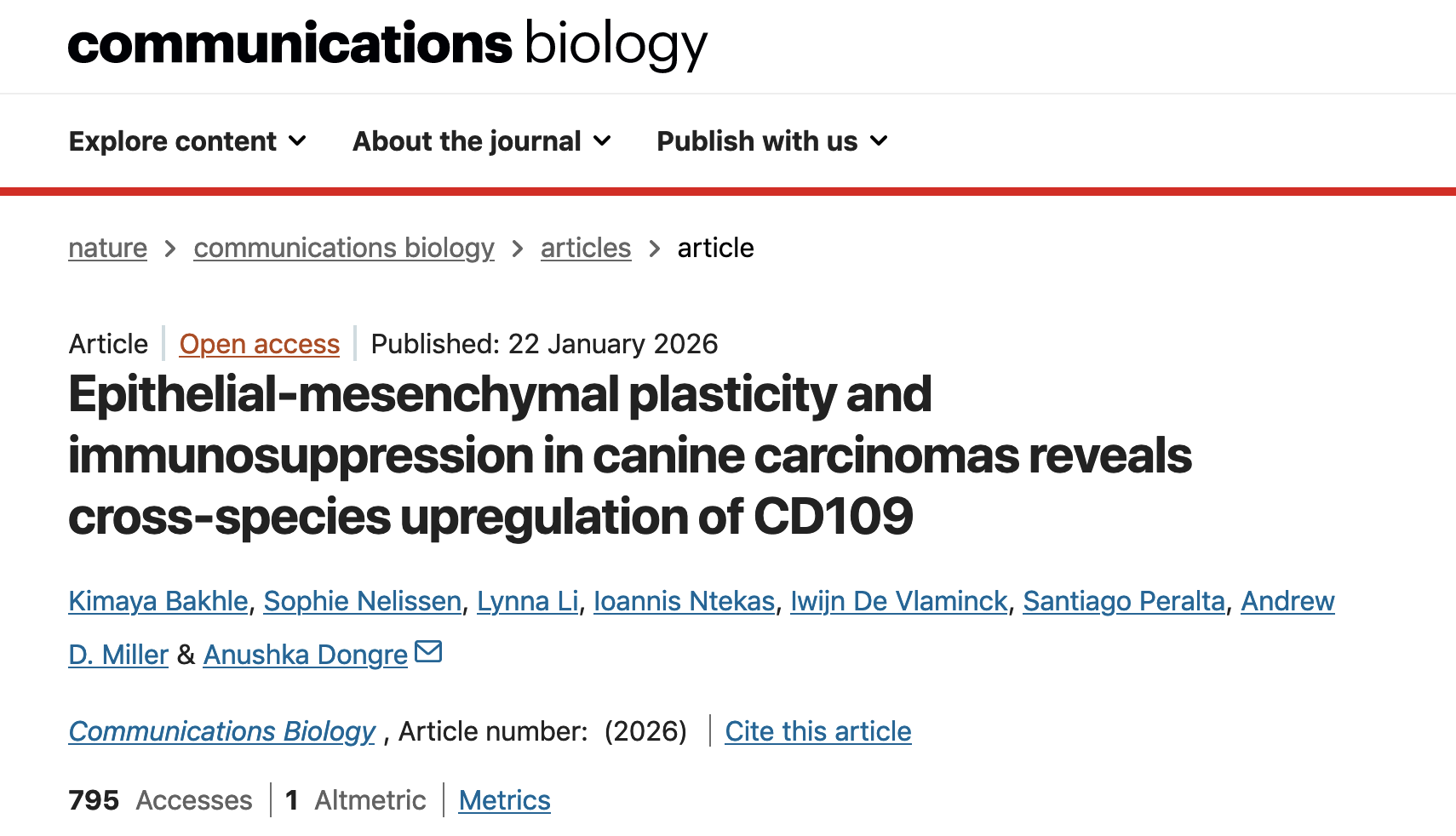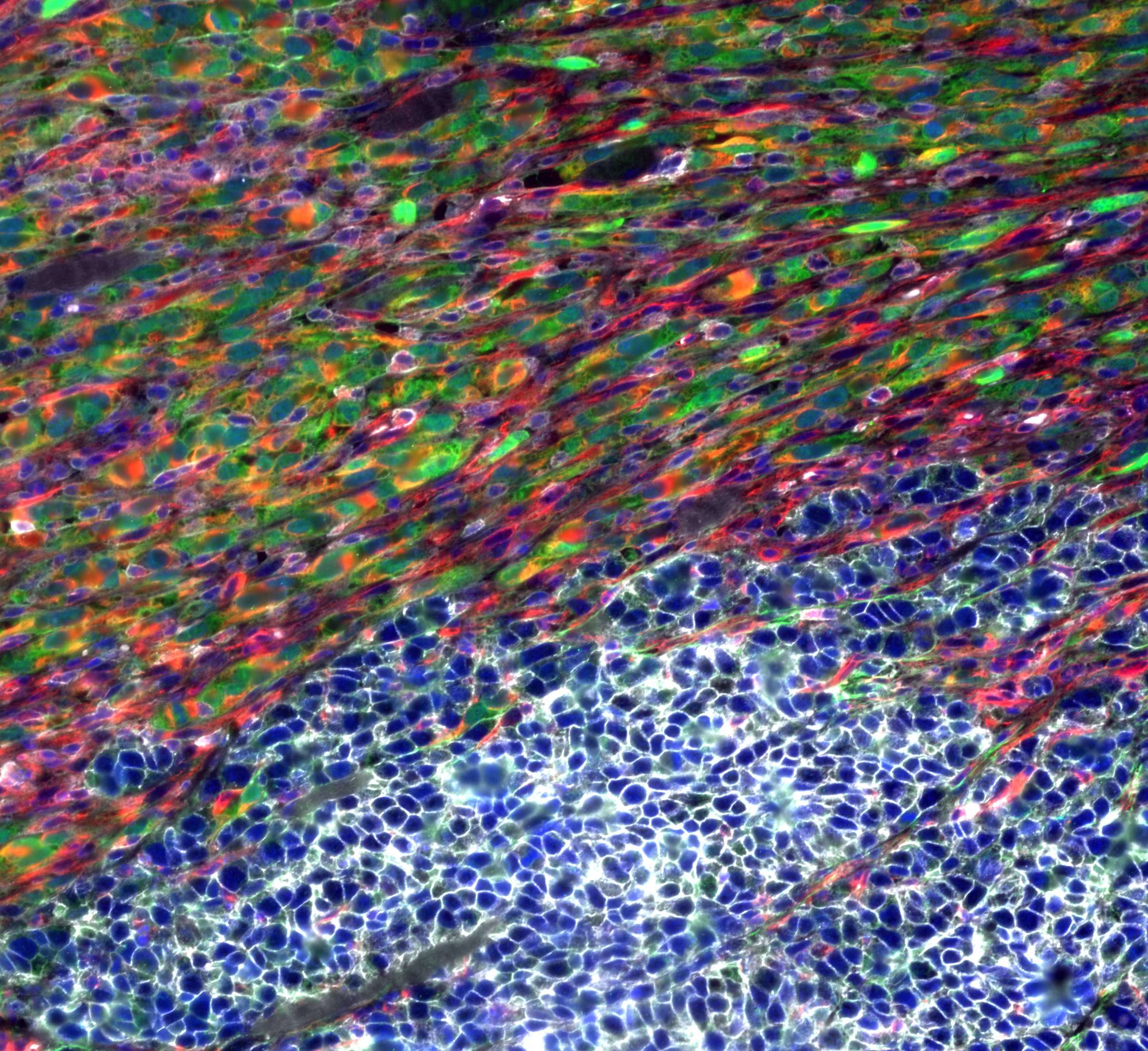
Epithelial-Mesenchymal Plasticity and Resistance to Anti-tumor Immunity
Although immune checkpoint blockade therapy has revolutionized cancer treatment, a subset of tumors, such as those of the breast, are still largely unresponsive. It is therefore critical that we drastically improve the curative potential of these therapies by understanding the mechanisms by which breast cancer cells mount resistance to immunotherapies. The Epithelial-Mesenchymal Transition (EMT), which converts epithelial cells to quasi-mesenchymal states, endows cancer cells with many traits associated with high grade malignancies. This includes their ability to metastasize to distant organ sites, acquire tumor-initiating abilities, and mount resistance to chemotherapies. In addition to these well-documented features, we have shown that the EMT program also enables breast carcinomas to establish an immunosuppressive tumor microenvironment and drive resistance to immune checkpoint blockade therapy. The Dongre Lab is focused on understanding the mechanisms by which breast cancer cells undergoing an EMT drive resistance to immunotherapy. Our long-term goal is to interrupt cancer cell-intrinsic immunosuppressive signaling channels, or the EMT program itself, to potentiate the efficacy of immune checkpoint blockade therapy for poorly responding breast tumors.
Recent Lab News
Kimaya’s first author manuscript is published in Communications Biology!
A Lab Dinner to celebrate accomplishments of the Dongre Lab Team!
The cancer metabolism focus group (CMFG) was started in 2023. It is a collection of scientists from approximately 20 labs across Cornell-Ithaca who meet monthly to share and discuss the latest research in the area of cancer & metabolism. The members of the CMFG executive committee are Anushka Dongre (BMS, committee chair), Meng Wang (DNS), and Zeribe Nwosu (MBG).Labs in the group represent at least four different colleges and eight different departments. The idea for this center was borne out of the observation made in the Department of Biomedical Sciences that interest in cancer metabolism was steadily growing on campus during 2021-2023, with new hires in this area across several different departments and colleges. The vision for the CMFG was to create a space for these groups to come together, learn from each other, and forge collaborative connections. In particular, it was deemed that trainees should take the lead in presenting their own work or the latest cutting-edge published work in the field.
For more information on how to get involved in the CMFG, please contact Anushka Dongre (Committee Chair) and Heather Muniz (Program Support)


